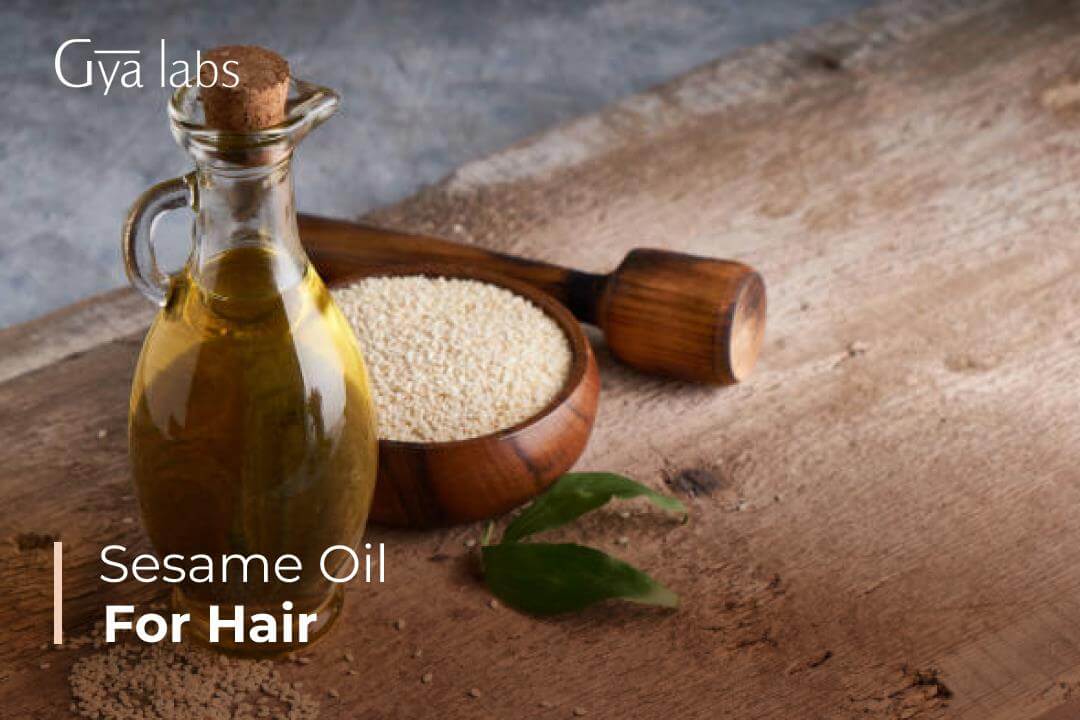What is Rosemary Oil?
Rosemary oil is a pure natural oil derived from the rosemary leaf. This herb is native to the Mediterranean region and has been used for therapeutic and aromatic purposes for hundreds of years.
Scientists, dermatologists, and researchers from all over the globe have voiced their support for the benefits of rosemary oil, be it for the skin, hair, or the human body.
Rosemary Essential Oil For Hair Care
Rosemary plant in essential oil form is an excellent solution when it comes to improving the health of your hair. As mentioned, it is loaded with natural properties which help to protect hair from damage and breakage. When applied regularly rosemary oil may assist in increasing hair regrowth by stimulating the scalp and promoting circulation.
In addition to increasing blood circulation, rosemary oil also manages to provide a great moisturizer for a dry scalp. By regular usage of rosemary oil, along with all the ingredients mentioned below, you can treat hair loss and see new growth in your hair.
Must Read: Homemade DIY - Rosemary Water for Hair
Can Rosemary Oil Prevent Hair Loss And Help With Hair Growth?
Millions of people from all over the world face the problem of hair loss and many people go over the internet and look for solutions but remain unable to find one. With the barrage of available information online, the confusion only gets bigger and hair, lesser. However, people need to realize that the problem may be the same for everyone, but the cause can be different.
Hair fall can occur because of various reasons, for example, an unbalanced diet, hormonal changes, genetic problems, etc. As you can see, the reasons for hair loss are plenty, but the solutions are inadequate.
To find an answer to this universal problem, there are many areas of science that we look towards, especially natural sciences. With herbs like rosemary, henna, aloe vera, lavender, jojoba, and many more, hair loss can be treated with much more care and understanding. [1].
Similarly, the most popular use of rosemary oil has been stimulating natural hair growth and fighting thinning hair. Research shows that rosemary oil strengthens, improves, and provides thickness due to its stimulating effect on the scalp, because of which, healthy hair grows. It helps in increasing blood circulation to the scalp by penetrating deep inside to revive damaged cells and enhance nerve growth, which ultimately encourages hair growth.
Apart from this, it also helps to protect the scalp from damage caused by harsh chemicals and pollutants from other artificial products for hair.
For more information on how rosemary oil compares to minoxidil in promoting hair growth, check out this article: Rosemary Oil vs. Minoxidil for Hair Growth.
Who Can Use Rosemary Oil?
There's no prerequisite as to who can use rosemary oil or which type of hair it affects the best. Rosemary oil can be used on any hair type since it mainly targets the scalp and the hair follicles, not the hair itself.
People suffering from hair loss, hair thinning, hair fall, dry and itchy scalp, dandruff, and such hair problems can benefit from rosemary oil. Rosemary oil contains compounds such as rosmarinic acid, camphor, and eucalyptol that can help promote healthy hair growth, whisk away scalp itchiness, and can also help balance oil production on the scalp, resulting in healthier and more manageable hair.
Rosemary Oil In Your Hair – What Research Says
As mentioned, many researchers have voiced their support for rosemary oil and its beauty benefits.
Many studies show that using the extracts of rosemary leaf can result in a significant increase in hair count. [2]. However, one also needs to observe that the cause of hair loss mentioned in the study is hormonal. This shows that there are various causes that lead to hair loss.
Similarly, other studies have also proven that when mixed with a carrier oil, the efficacy of rosemary oil is much greater and has more potential to increase hair growth. [3].
Downsides To Using Rosemary Oil For Hair
Unlike medication, natural oils are not enhanced to be suitable for human beings. Due to this reason, the usage of natural oils, especially rosemary oil, can result in some side effects. But that should not stop you from using it because the side effects don't necessarily mean unhealthy.
Think of it like this: why do these enhanced, supplementary medications, which are supposed to be healthy and rejuvenate our scalp, prove unable to help hair even after proper application? This is because these enhancers contain very little or no natural elements considered essential for the hair.
These artificial enhancers are made in science labs with harmful chemicals like sulfate and paraben. They are sold in the name of "Herbal Cosmetics", as rightly said by Laxmi S Joshi. Harshal A Pawar, in research they did for the Natural Products Chemistry & Research, "Herbs do not produce instant cures. They offer a way to put the body in proper tune with nature". [4]
Now, with the assumption aside that side effects generally mean disadvantages, let's look at a few downsides to using Rosemary oil.
- Irritation in eyes. When applying rosemary oil to treat your hair, be careful to cover your eye, or else you might experience irritation. The reason is that since rosemary oil is an essential oil made by cold-pressing rosemary herbs, they sometimes tend to get highly concentrated. The best way to avoid irritation is to mix the rosemary oil with a carrier oil.
- Similar to the eyes, too much application of this cold-pressed rosemary oil may result in severe itching and flakes on your scalp. Again, the solution is to mix rosemary oil with coconut or almond oil.
How To Use Rosemary Oil For Hair Growth
Another important thing to remember is that blatantly applying rosemary oil directly to your hair may result in various side effects, one needs to be aware of the proper steps to follow to get maximum results. To help you avoid mistakes, we are providing a step-by-step guide to applying rosemary oil to your hair correctly. By following these steps,
Step 1:
First and foremost, visit your dermatologist and get their approval. Your dermatologist knows your hair and skin better than you, so you must inform them about the procedure, consider their recommendations, and then begin with the treatment.
Step 2:
Mix carrier oil along with rosemary oil. A carrier oil could be any hair oil of your choice. It just needs to act as a base for the rosemary oil. Since rosemary oil is very thick in consistency, it can be hard to apply. To avoid this problem, mixing rosemary oil to a carrier oil like castor oil, jojoba oil, almond oil, or coconut oil can be a great solution. These oils are known to be beneficial for hair, so mixing a few drops of rosemary oil with any of these can work wonders. Grab an oil of your choice, mix it, and apply it to your hair.
If you want to experiment, you can also preheat the oil before mixing it with rosemary and then apply it to your natural hair and scalp. What this does is the heat oxidizes the oil and makes it suitable to strengthen the hair. This can be an excellent treatment as the warm oil penetrates through the scalp to cure the damaged cells.
Step 3:
The method of application is straightforward. Take the mixture of carrier and rosemary oil in your palm, dip your fingers in the oil, and rotate your fingers on the scalp in circular motions. Massaging the oil on the scalp like this ensures that it goes deep inside and revitalizes the hair shaft. If you don't want to make your fingers oily, then you can also use a massager. The main goal is to let the oil penetrate deep inside the scalp.
Step 4:
Since rosemary oil is thick in consistency, we recommend using shampoo to wash it off your hair. After applying the oil to your hair, you can either wash your hair with water in an hour to rinse the oil off or keep it overnight. Keeping it overnight would be highly beneficial as the oil would get enough time to work its magic on your scalp and promote hair growth.
By following these steps regularly for a few months, you will see a significant amount of change in your hair and scalp health.
How Often To Use Rosemary Hair Oil For Growth?
Although rosemary oil is a wonderful solution to hair-related problems, using it on a daily basis would not make things faster. Researchers say that it normally takes around 5-6 months of regular application of rosemary oil before you start to see any changes. This also means that people who would use rosemary oil for, let's say, thin hair may notice changes earlier than people who use it to grow their hair back.
It's important to know how often you should use rosemary oil to get the most out of its benefits. While the frequency of use will depend on your hair type, it's generally recommended to use rosemary essential oil once or twice a week.
For those with thinning hair, using rosemary oil more often – up to three times a week – may help promote healthy hair growth and reduce thinning. If you have oily hair, using rosemary oil two or three times a week may help regulate the production of sebum and keep your scalp and hair healthy. On the other hand, if you have dry or damaged hair, you should use rosemary oil only once a week to protect your hair from further damage.
Finally, regardless of hair type, it's important to use only a little rosemary oil in one application. When applying it to the scalp, you should use only 2-3 drops per 1 tablespoon of carrier oil (such as jojoba or coconut oil). Doing this will ensure that your scalp and hair stay healthy and you get the most benefit from using rosemary essential oil.
However, it must be kept in mind that consulting your doctor before applying is as important to the process, so make sure you let them know.
Rosemary And Almond Oil For Hair Growth
A combination of rosemary oil and almond oil for hair growth can be beneficial for maintaining healthy hair. Rosemary oil is believed to improve circulation to the scalp, thus stimulating hair follicles, while almond oil provides moisture and nourishment to the hair and scalp. Here's a small recipe:
- Combine a few drops of rosemary oil with almond oil in a small glass or bowl.
- Apply the mixture to your scalp and massage it in gently with your fingertips. Ensure even distribution.
- Leave the mixture on your scalp for a few hours or overnight for better absorption.
- Wash your hair with a mild shampoo to remove the scalp oil.
- Repeat almond oil and rosemary oil for hair 2-3 times a week for best results.
Where Can I Buy Pure Rosemary Oil for Hair?
You can find Rosemary Essential Oil from Gya Labs which will not only help strengthen hair but also encourage new growth. Our product has proved to be very effective for hair related problems and beneficial for proper scalp treatment. So go ahead, and get our products with rosemary oil.















